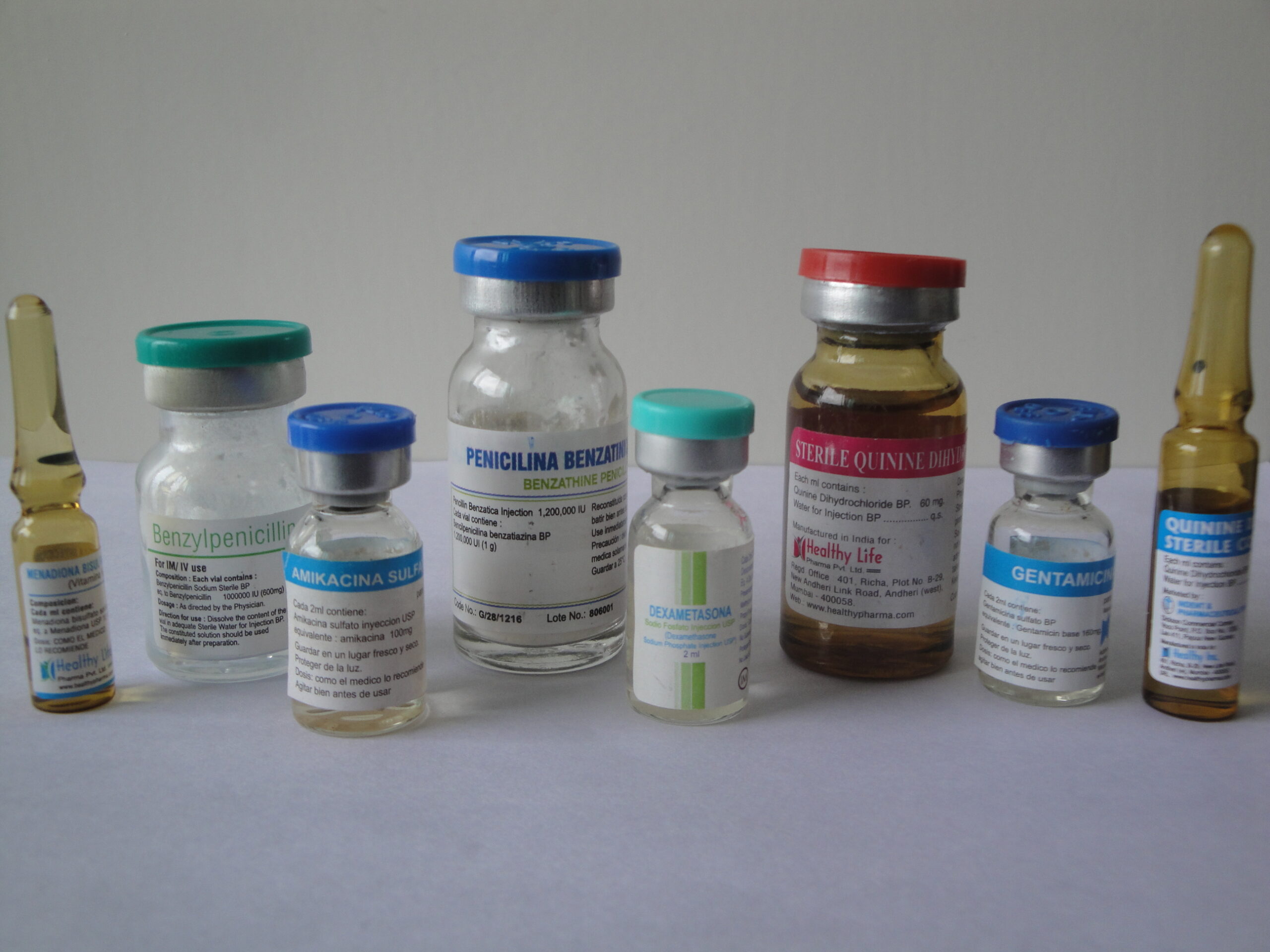Description
Dexamethasone Phosphate veterinary injection
Dexamethasone is a corticosteroid medication that has anti-inflammatory and immunosuppressive properties. It is commonly used in veterinary medicine to treat various conditions in animals. Dexamethasone phosphate is one of the formulations of dexamethasone, and it is often used for injection in veterinary practice.
Here are some general uses of dexamethasone phosphate in veterinary medicine:
Inflammatory Conditions: Dexamethasone is used to reduce inflammation in conditions such as arthritis, allergic reactions, and skin disorders.
Allergic Reactions: It can be employed to manage severe allergic reactions or anaphylaxis in animals.
Autoimmune Disorders: Dexamethasone may be prescribed for certain autoimmune disorders where the immune system attacks the body’s own tissues.
Shock: In some cases of shock or severe stress, dexamethasone may be used to support the animal’s response.
Respiratory Conditions: It might be used to reduce inflammation in respiratory conditions like asthma or bronchitis.
Neurological Conditions: Dexamethasone may be considered in the treatment of certain neurological conditions where inflammation is a contributing factor.
It’s important to note that the use of dexamethasone or any other medication in veterinary practice should be under the guidance of a veterinarian. Dosage, frequency, and duration of treatment can vary based on the specific condition and the animal’s individual health characteristics.
Additionally, the use of corticosteroids like dexamethasone may have potential side effects, and the veterinarian will consider the risk-benefit ratio before prescribing it. Regular monitoring of the animal during treatment is essential to ensure its well-being.
Always consult with a veterinarian for advice tailored to your specific animal’s health needs and conditions.
Dexamethasone phosphate is a corticosteroid medication commonly used in veterinary medicine for its anti-inflammatory and immunosuppressive properties. It is often administered via injection to treat a variety of conditions in animals, including allergic reactions, inflammatory diseases, autoimmune disorders, and certain types of cancers. Dexamethasone works by suppressing the body’s immune response and reducing inflammation, which can help alleviate symptoms and improve overall health in affected animals.
As with any medication, it’s crucial to administer dexamethasone phosphate for veterinary use under the guidance of a qualified veterinarian. They will determine the appropriate dosage and frequency of administration based on the specific condition being treated, the animal’s size, weight, and overall health status. It’s also essential to follow the veterinarian’s instructions regarding proper storage, handling, and disposal of the medication to ensure its effectiveness and safety.
Dexamethasone phosphate is a corticosteroid medication commonly used in veterinary medicine to treat various inflammatory conditions in animals. It belongs to the glucocorticoid class of drugs and has anti-inflammatory and immunosuppressive properties. Dexamethasone phosphate is often administered through injection to provide a rapid and effective response.
Here are some common uses of dexamethasone phosphate in veterinary medicine:
Allergic reactions: It can be used to treat severe allergic reactions and anaphylaxis in animals.
Inflammatory conditions: Dexamethasone phosphate is employed to manage inflammatory conditions such as arthritis, dermatitis, and respiratory disorders.
Autoimmune diseases: In some cases, where the immune system is overactive and causing harm to the body, dexamethasone may be prescribed to suppress the immune response.
Shock: It might be used in cases of shock to reduce inflammation and stabilize the animal.
Certain cancers: Dexamethasone may be part of a treatment protocol for certain types of cancer in animals to manage inflammation and swelling.
It’s important to note that the use of dexamethasone and other corticosteroids in veterinary medicine should be done under the guidance of a veterinarian. The dosage and duration of treatment depend on the specific condition being treated and the individual characteristics of the animal. Overuse or misuse of corticosteroids can lead to side effects, and abrupt discontinuation of the medication may cause withdrawal symptoms.



